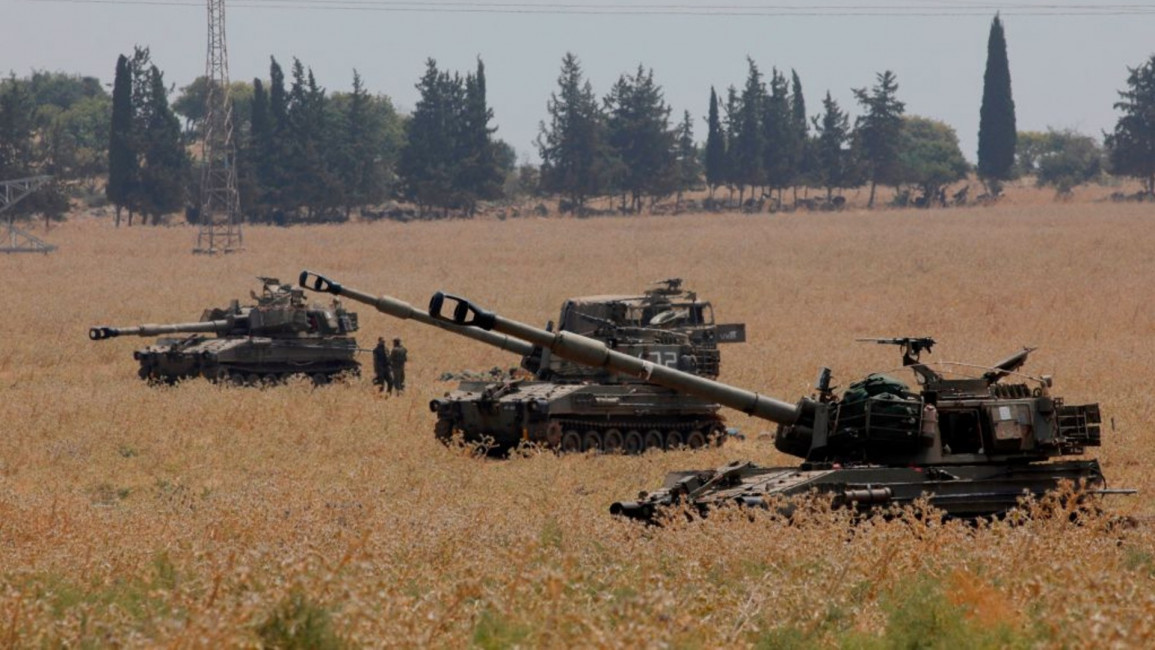Israel says serious war with Hezbollah remains 'unlikely'
High-level figures with Israel's security feel there is still no great likelihood of a serious armed conflict against neighbouring Lebanon, though the two sides are readying for lower-level eruptions that might develop into something bigger.
This comes despite Beirut's finances being in meltdown and an ongoing governmental crisis, which the Israeli security figures say still could compromise order there and provoke a rise in tensions, Haaretz reported on Thursday.
Meanwhile, Tel Aviv's army is attempting to convince the country's leaders that a serious conflict would necessitate an invasion, unlike during the Jewish state's bombing campaign against Gaza two months ago.
Such a move may help Hezbollah given the Lebanese Shia group's attack power and the lay of Lebanon's land, in addition to the high numbers of fatalities such Israeli aggression would lead to.
Aerial bombardment "would be powerful in the first hours of fighting, but subduing the enemy during the operative stage would require a ground maneouver", Brigadier General Dan Neumann said on Tuesday.
At the same time, figures with the Jewish state's armed forces reportedly believe Hezbollah is readying itself for conflict in case Tel Aviv launches an unexpected offensive.
The group is considering what happened during the recent Israeli aggression against Gaza, particularly concerning its air protection systems, which Hamas was able to breach in May.
Headed by cleric Hassan Nasrallah, Hezbollah is able to target all areas of the Jewish state and has a stockpile for around 140,000 projectiles, of which it is estimated they could launch around 3,000 in a single day.
However, figures with the Israeli armed force consider that Nasrallah will probably wish to avoid using this arsenal.
Reconstruction efforts after the significant destruction that an escalation would bring are not likely to prove easy.
Moreover, it would fall to Nasrallah to work these efforts out, something he would like to steer clear of.
Since 2018, the Israeli army has created multiple strategies for many different circumstances and scales of escalation against Lebanon.
It is thought these will be authorised for use within the next month.
Meanwhile, amid improved Israeli capacities, at least one top figure there is claiming the results of a war would be damaging for Hezbollah.
306 cases of #childlabour on Lebanon's streets have been reported in the first half of this year, say @save_children https://t.co/APPxWwJ2kR
— The New Arab (@The_NewArab) July 14, 2021
Israeli Northern Command's leader Amir Baram asserted: "If there is another war, Hezbollah will pay a much higher price than it paid in the Second Lebanon War".
Fallout from any significant increase in tensions is likely to severely harm the already impoverished civilian population, however.
The country is in the midst of an economic catastrophe. On the black market, the Lebanese pound has fallen by approximately 90 percent versus the American dollar.
Amid this backdrop, plus the devastating Beirut port explosion, a UN commission said last August that over half of Lebanon's population is "trapped in poverty".



